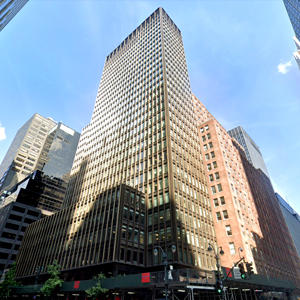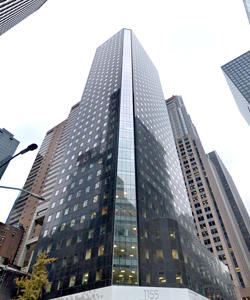When the Durst Organization rejected WeWork’s bid to take 12 floors at One World Trade Center last year, the developer had an idea for its own flexible office space operation.

One World Trade Center (Credit: Wikipedia)
The concept of Durst setting out on its own ultimately wasn’t the reason for giving WeWork the boot, but the embattled co-working giant did help inspire “Durst Ready,” a new flexible office space leasing arm that will launch next week. The company saw an opportunity to compete with co-working firms for small to mid-sized tenants.
“They go to a WeWork or one of their competitors because they don’t want the hassle of the fit-out,” said Durst’s Jordan Barowitz. “That’s a place that, with a little bit of ingenuity, we can compete.”
Durst will offer spaces of 2,500 to 25,000 square feet in the mid- to high $80s psf, though prices will vary depending on the location. The spaces will be move-in ready, meaning they are pre-furnished and wired. To start, Durst is marketing space in 675 Third Avenue, 1 WTC, 114 West 47th Street, 1155 Sixth Avenue and 733 Third Avenue. Lease terms can range from six months to 15 years.

675 Third Avenue (Credit: Google Maps)
Eric Engelhardt, senior managing director of commercial leasing, said Durst has closely watched the evolution of co-working in the city, which has grown to over 13.5 million square feet alone in Manhattan. The real estate company isn’t alone — Tishman Speyer, Boston Properties, Hines and Silverstein Properties have all formed their own answers to WeWork. Durst has also invested in and partnered with Convene, which manages common spaces and amenities for office landlords.
WeWork’s hold on the market, now more than ever, is uncertain. Though the company transformed commercial leasing, its path to going public has been tumultuous, leading to co-founder Adam Neumann stepping down as CEO this week. Still, Engelhardt said there’s an industry-wide recognition that flexible office space is likely going to make up a larger percentage of the market going forward. After hearing from prospective and current tenants looking for flexible leases and not finding the right partner to provide it across its portfolio, Durst decided to start its own operation.

1155 Sixth Avenue (Credit: Google Maps)
“We’re not looking for tenants who are not sure if they are going to be bought or merged in the next six months, and they are just looking for a place to ramp up so they can sell their widget,” he said. “Our intent is to seek out tenants who are ultimately not of a transient nature and who ultimately have a long term goal of being part of the Durst portfolio.”
